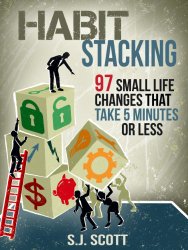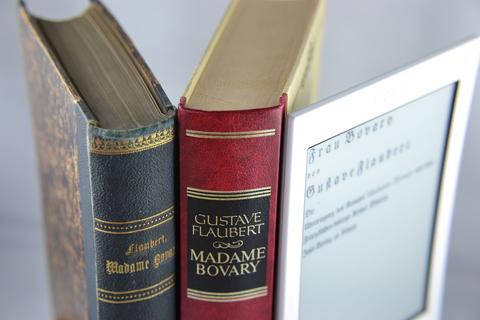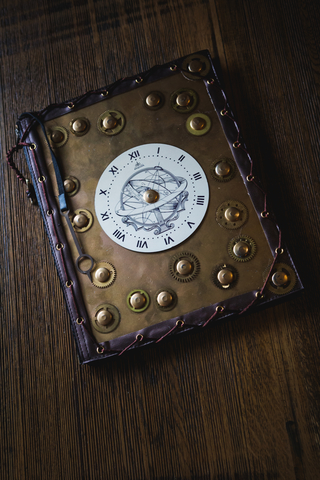What KU’s New Pay Terms Mean For Nonfiction Authors

Case Study: Steve Scott Focuses First on List Building
Case Study: Nick Loper Builds Brand Authority With E-books
Last month, Amazon announced big changes to how it will pay authors who publish books through its Kindle Direct Publishing platform and opt in to the Kindle Unlimited (KU) reading system. The changes took effect July 1, 2015. In order to become a part of the KU system, an independent author must join KDP Select, which gives Amazon exclusive distribution rights for the work. This is one reason authors like Chuck Wendig, who publishes both fiction and nonfiction, recommend authors not join the program–unless they publish short e-books (careful, Wendig tends to be rather loose with his language). Wendig is very open about his opposition to exclusivity for authors on principle.
While you can easily find authors–both fiction and nonfiction–who are opposed to book seller exclusivity, there are others who are making a decent side income or even a full-time living selling strictly through Amazon’s KU system.
I’d be curious, by the way, to find out how Nathan Meunier and Steve Scott do after these changes have been in place for a few months.
What Changes Did Amazon Make To Its Kindle Unlimited Payouts?
 Not everyone is happy with Amazon’s changes. The Guardian reports that KU authors could earn as little as .006 cents per page read under the new pay plan.
Not everyone is happy with Amazon’s changes. The Guardian reports that KU authors could earn as little as .006 cents per page read under the new pay plan.
That doesn’t seem like much, but when you consider that e-books are a commodity where value is tied to customer satisfaction, then it’s reasonable to expect that an author will be paid fairly based on how well she satisfies readers after the purchase. On a 200-page e-book, that .006 cents per page read translates into $1.20 per download. When you consider that most self-published e-books sell for $2.99 and non-KU authors keep 70% of that, you could expect to earn $2.093 per e-book download by not joining the program.
Of course, that makes sense if you sell enough copies to justify the offset, but that’s an unpredictable number.
Before these changes took effect, Amazon paid e-book authors out of a fund for each book borrowed through the Kindle Unlimited system. If you had a 40-page e-book, for instance, that sold 100 copies, you were paid the same as an author with a 300-page e-book that sold 100 copies, but only if a reader completed 10% of the book before putting it down.
Amazon dedicates a fixed amount of money each month to be divvied up by authors who are enrolled in the program. Amazon claims its changes were made based on author feedback. Presumably, that feedback is from authors of longer e-books.
Under the new payout system, authors will be paid based on pages read. Here’s how it will look:
- If you publish an e-book of 40 pages and it is downloaded 100 times and read completely through all 100 times, assuming the KU fund is at $10 million and the total pages read from all e-books by all authors in one month was 150,000,000, then this author would earn $266.67. That’s .067 per page read, a little better than predicted by The Guardian.
- The same author with the same number of downloads but with only an average 15 pages read per e-book would earn just $100, assuming all other data is the same.
- By contrast, an author with an e-book of 200 pages downloaded 100 times in one month and read completely through every time would earn $1,333.33.
Of course, given the law of averages, I wouldn’t expect any book to be read through completely by every person who downloaded it. But here’s the million dollar question, is this payout system fair to all authors?
Why Amazon’s New KU Payout System Is Fair
If readers don’t complete your nonfiction book, then that’s pretty strong evidence that you aren’t doing your job as an author.
Successful fiction author Hugh Howey agrees that it’s a fair system. Other authors, like erotica standout Selena Kitt, is pulling her books out of KDP Select because she is losing income. A poll on Kindle’s author forum indicates a majority in favor of the changes.
While the majority of authors weighing in on this topic are fiction authors, some are saying nonfiction authors could end up losing revenue over this. I don’t see that a likely scenario. At the end of the day, you either kept your audience interested or you didn’t. Perhaps authors ought to care less about how many people purchased a book and more about what percentage of those who did purchase it read it all the way to the end. Amazon’s new payout system can help you figure that out.
A Look at the Objections to the New Pay System
 Journalists, like authors, have varying opinions on the new payout system, as well. Mathew Ingram at Fortune is for it.
Journalists, like authors, have varying opinions on the new payout system, as well. Mathew Ingram at Fortune is for it.
All the talking points for Amazon’s new payment system boil down to one argument: Encouragement for higher quality literature (fiction or nonfiction). Arguments against it are all over the map.
PC Mag‘s Chandra Steele says it will cheapen books. In a snarky rant at The Telegraph, anti-quality literature columnist Harry de Quetteville appeals to–well, I’m not sure what he’s appealing to. Peter Wayner at The Atlantic thinks every author will now resort to cliffhangers and endless secrets that need to be revealed in order to increase page reads. Maybe so, but readers know when they’ve been had and likely won’t stand for it, which is the point.
What all of these criticisms miss is that readers want good books. They want to read all the way to the end. No one purchases, or borrows, a book hoping to only read 10 pages. But if you haven’t hooked the reader by the 10th page, then you shouldn’t expect them to keep reading–fiction or nonfiction.
LauraBee at 1106 Design put all of her objections into one blog post:
- It’s creepy – Eeeewww! Amazon is tracking what I read? Like they’re not doing that already. Ever notice how they recommend new books based on books you’ve already purchased? Now they are going to know how far into the books you have read (but only those you borrow, not the ones you buy). And it’s for a good reason. They’re really not trying to discover whether you skip all the dirty parts or read only the dirty parts. They just want to elicit a more just payout system for authors–one that rewards authors for doing their jobs well.
- Coming soon to all e-books near you – Okay, so what? “Traditional authors and publishers will be shaking in their boots”. So what? I have a feeling that Amazon will listen to the marketplace. They always have before.
- It will change book content – Again, so what? If the content is better, who should complain?
- Fairness – Here’s where LauraBee reveals her total lack of understanding of Amazon’s KU system. Her argument is to question why Amazon itself isn’t paid by the page read. Because readers pay a flat monthly fee to read as many books as they want (as opposed to paying full retail price for each book). The monthly fee is $9.99, which means a reader can borrow four books regularly priced at $2.99 and make out better than she would if she bought each book instead. It’s a lending library. All of Amazon’s lending competitors operate on the same basic pay model. This argument is a red herring.
Regarding the other arguments–it will cheapen books, tradition and yada yada yada, and endless cliffhangers, etc.–all of them are red herrings.
I find de Quetteville’s rant particularly amusing because who reads all of Moby Dick, or Thomas Piketty’s massive tome on capital in the 21st century? Who reads them is beside the point. Herman Melville is dead, so I’m sure he’s not the least bit concerned about royalties. And if Piketty feels like his book isn’t earning him enough royalties due to book buyers falling asleep in the first chapter, then he can influence his publisher to remove it from the KU system (by the way, Piketty’s book is in the KU system and for sale at Barnes & Noble’s Nook store, which means he hasn’t been forced to offer his book exclusively through Amazon like independent authors are; if you want to take up an issue with Amazon, there’s a good one).
So, really, what it all boils down to is a bunch of authors who figured out how to make money from a huge book seller by offering low-quality short books and getting paid a higher royalty than they would on sales of those books have suddenly discovered the end of the party. Pardon me, but I have no sympathy for them.
Why Quality Should Be The Only Standard (for All Authors)
Whether they buy or borrow a book, I think readers have a reasonable expectation that it deliver on the promise that book’s title and sales copy make.
With nonfiction, the quality comes in the delivery of the information. I don’t care if the book is long or short. If it gives me the information I want in a manner that I find pleasing, then I’ll keep reading. If it isn’t worth my time to keep reading, I’ll put it down and read something else–or wash the dishes. As an author, I have to keep that in mind because I know every reader who buys or borrows my books are thinking the same thing.
Full disclosure: My books are not enrolled in KDP Select, so you can’t borrow them from KU. You can only buy them. That’s a conscious decision I’ve made as an author. I reserve the right to make exceptions.
Nevertheless, whether they buy or borrow a book, I think readers have a reasonable expectation that it deliver on the promise that book’s title and sales copy make. If it doesn’t, put it down and read something else. If you bought the book and you are disappointed, you can always return it and get your money back. The author then relinquishes his royalties on that book. If you borrowed it, just stop reading. The author will be paid for the parts you actually read.
There is one other objection to Amazon’s new payout system that I haven’t addressed.
Tradition. What about it?
Does It Matter How Charles Dickens Was Paid?
 Savvy readers understand there is a history to literature. Some good authors made their money by writing and selling serials. Others made good coin simply writing books, whether anyone read them all the way through or not. Does it really matter?
Savvy readers understand there is a history to literature. Some good authors made their money by writing and selling serials. Others made good coin simply writing books, whether anyone read them all the way through or not. Does it really matter?
Traditional publishers have never had the ability to measure how much of a book their readers completed. If you buy a paperback book, you can stop reading on page 20 and no one will know. You can’t take the book back to the book store and say, “I stopped at page 20, now give me a prorated refund based on how much of the book I actually read.”
Amazon has the technological ability to measure how much of a particular e-book has been read. I see no reason why that technology can’t, and shouldn’t, be put to good use. If it measures something useful, then it should be used.
I will say that Amazon should share that information with authors. If they discover that your bestseller was purchased last month by 1,000 readers but that 50% of those readers read it completely through, then that’s useful information for an author. I wouldn’t encourage Amazon to use that information to pay authors of books that are sold through its book store unless they intend to also charge readers using the same percentage-read system. That is an option.
On the other hand, if you borrow a book and only read the first chapter, then I think it’s entirely acceptable for Amazon to pay an author for the part of the book that is read. Why? Because they’re charging readers a flat fee for the privilege of reading as many books as they want to read in a single month. It just makes sense.
Here’s the Takeaway For Independent Nonfiction Authors
 Nonfiction authors publish books for different reasons. For some, it’s a way to establish authority on a given topic. For others, it’s about sales. Other authors use e-books as lead generation tools. Carol Tice uses e-books to drive people to sign up for her membership site.
Nonfiction authors publish books for different reasons. For some, it’s a way to establish authority on a given topic. For others, it’s about sales. Other authors use e-books as lead generation tools. Carol Tice uses e-books to drive people to sign up for her membership site.
Every author has different goals, in other words. But every author’s first goal should be to publish high quality books. If you do that and you can market them well to the right audience, then you should have no problem reaching your other goals. That’s what independent e-book publishing is all about, whether you publish fiction or nonfiction.


